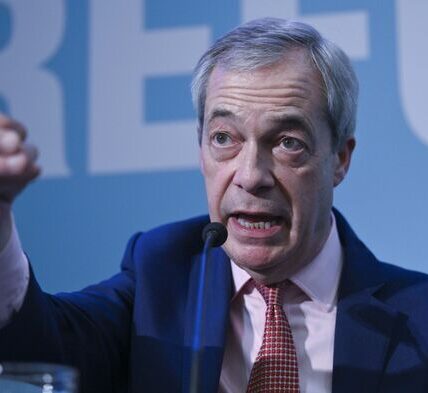Donald Trump’s administration is looking to use a lever which has never been employed, against certain foreign companies.

Donald Trump has triggered global economic meltdown over his tariffs (Image: Getty)
Donald Trump could impose a double tax rate on the American arms of UK companies in a ramping up of his global trade war. His US administration is reportedly planning to invoke a 91-year-old rule that gives the president the authority to raise taxes on foreign companies if their home nation imposes levies that are deemed to unfairly target US businesses.
Section 891 of the Internal Revenue Code, which gives the president this power, has never been used. The tax code allows the president to double tax rates for citizens and businesses of countries where Americans are subjected to “discriminatory” levies.
Experts have warned this could have an even larger impact than the tariffs on British goods unveiled last week.
Tim Sarson, head of tax policy for KPMG UK, said: “That’s the next battle in the [trade] war, and potentially affects the UK much more than the tariffs because we’re a services economy and this obviously affects service transactions as well.”
Mr Trump has long-warned of adjusting the tax regime in retaliation against countries which impose “discriminatory” taxes on US companies overseas.
A version of Section 891 has been in the US tax code since 1934, an earlier troubled time of tax disputes and economic depression.
It was signed into law by Democratic President Franklin D. Roosevelt on May 10 1934, amid a tax dispute between the US and France.
Stock markets plunged overnight in Asia and investors are braced for further sharp falls in New York as the fallout from US President Donald Trump’s tariff announcement enters its second week.
London’s FTSE 100 index dropped sharply on opening, falling 241.88 points, or 3%, in the first few minutes of trading after Mr Trump said he will not back down on his tariffs on imports.
That came after the index, which tracks the country’s top 100 listed firms, had its worst day of trading since the start of the pandemic on Friday, with banks among some of the firms to suffer the sharpest losses.
The Prime Minister has promised to make a raft of reforms designed to provide “certainty” and “support for industry” as firms grapple with the impact of new rules from the White House.
The Trump tariffs have also sparked panic across Europe, with markets in Sweden, Denmark, France, Germany and the Netherlands sharply down this morning, with the EU feeling the full effects.
The DAX in Frankfurt fell 6%, Paris’ CAC shed 5.7% and Sweden and Denmark’s markets both dropped 7% in an chaotic start to the week.
The European Commission’s trade commissioner Maroš Šefčovič spoke out on Sunday to say the EU remains “committed to meaningful negotiations but also prepared to defend our interests.”








Most Popular Comments